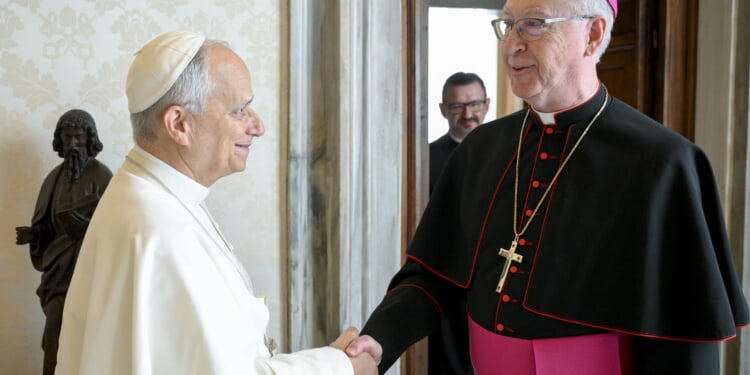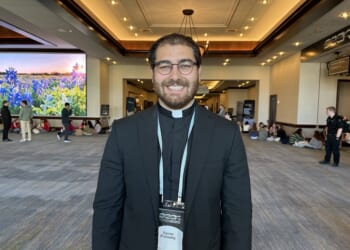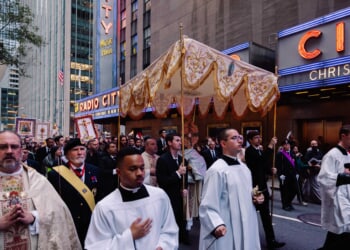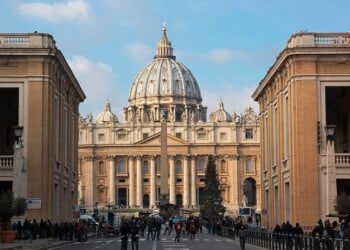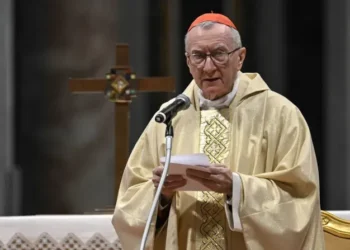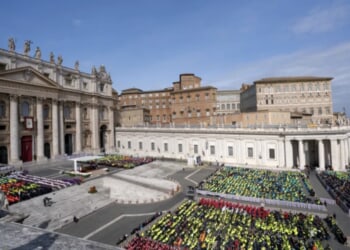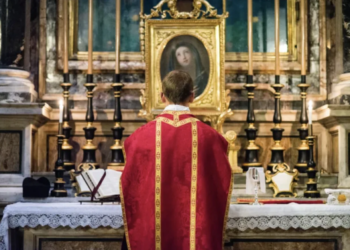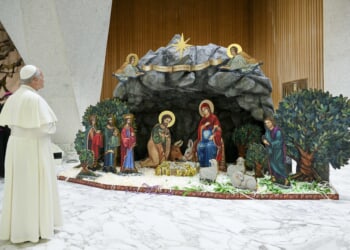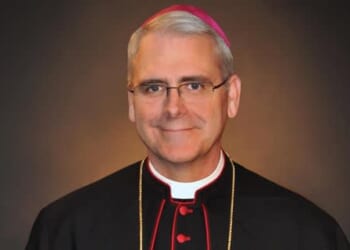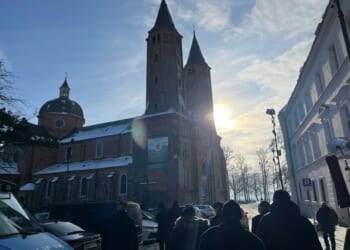ACI Prensa Staff, Nov 15, 2025 /
13:00 pm
In a Saturday meeting, Pope Leo XIV received Monsignor Pierre Goudreault, Bishop of Sainte-Anne-de-la-Pocatière and president of the Canadian Conference of Catholic Bishops, at which the Holy Father gifted dozens of artifacts that originated with Indigenous peoples of the North American country.
Leo at the meeting donated 62 pieces from the ethnological collections of the Vatican Museums to the Canadian bishops. Bishop Goudreault was accompanied by Archbishop Richard Smith of Vancouver and Father Jean Vézina, secretary general of the Canadian bishops.
“It is an act of ecclesial sharing, through which the Successor of Peter entrusts to the Church in Canada these objects, which bear witness to the history of the encounter between the faith and cultures of indigenous peoples,” the Vatican said.
The 62 donated objects come from various indigenous communities and are part of the collection received during the 1925 Vatican Missionary Exhibition, promoted by Pope Pius XI during the Holy Year to bear witness to the faith and cultural richness of the peoples.
“The Holy Father Leo XIV wanted this gift to represent a concrete sign of dialogue, respect, and fraternity,” the Holy See said.
“Sent to Rome by Catholic missionaries between 1923 and 1925, these objects became part of the Lateran Missionary Ethnological Museum, which later became the Anima Mundi Ethnological Museum of the Vatican Museums,” the Vatican added.
Pope Leo’s gift is part of the observance of the Jubilee Year 2025. All the pieces are accompanied by information from the Vatican Museums “certifying their provenance and the circumstances of their transfer to Rome for the 1925 Exhibition.”
“They were handed over to the Canadian Episcopal Conference, which, in a spirit of loyal cooperation and dialogue with the Directorate of Cultural Heritage of the Vatican City State, has committed to ensuring their proper care, promotion, and conservation,” the Vatican said.
During a July 2022 visit to Canada, Pope Francis left a message of reconciliation and emphasized the need to “start afresh” by looking together at Christ crucified.
Throughout his trip, the pope had expressed his shame and regret for the role played by the Catholic Church in the management of many of the government-sponsored residential schools for Indigenous children.
These residential schools, which operated until the late 1990s, aimed to eradicate aspects of Indigenous culture, language, and religious practices. Former students have described mistreatment and even abuse at the residential schools.
According to the Holy See, the meeting on Nov. 15 concludes “the path begun by Pope Francis through his Apostolic Journey to Canada in 2022, the various audiences with indigenous communities, and the publication of the Declaration on the Doctrine of Discovery in 2023.”
That year, the Vatican’s Dicastery for Culture and Education and the Dicastery for Promoting Integral Human Development stated that the so-called “Doctrine of Discovery,” which European colonizers allegedly used to justify their actions against indigenous peoples, is not part of Catholic teaching.
The Vatican agencies then specified that “many Christians have committed acts of evil against indigenous populations, for which recent popes have asked forgiveness on numerous occasions.”
This story was first published by ACI Prensa, CNA’s Spanish-language news partner. It has been translated and adapted by CNA.

